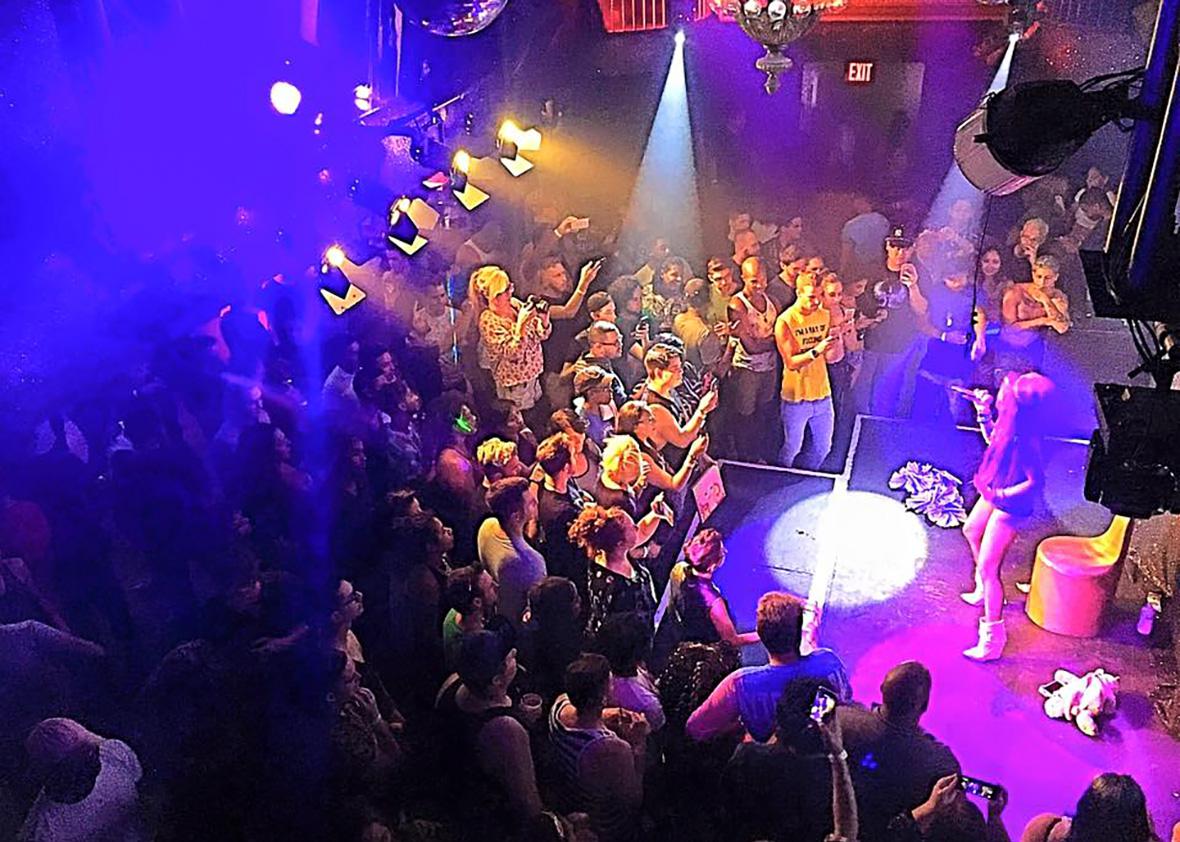I can’t look at their faces. When I can look at them without crying, without feeling a sharp twinge in my gut, I think that’s how I’ll know that I’m OK again.
I woke up on Sunday to the sound of my roommate crying. The world was still coming into focus when I walked outside to get him a bottle of cold water from the deli across the street. He said he couldn’t feel his face. He was having an anxiety attack. I was in a stupor.
Ping! Tragedy has a way of making everything more present, more detailed. The bell rang as I walked through the door into the deli, and the sound was so distinct and shrill that I immediately knew this was a sound I would always remember whenever I thought back to this day, and I knew I would think back to this day. I was that lucid.
My roommate is a bisexual Latino. I am a gay Latino. We had been out at a gay club just the night before. When I returned with his water, we hugged. I remember feeling like it was all of me that was being hugged, because we had a mutual understanding of this tragedy. It was Latin night at Pulse nightclub in Orlando: “That could have been us.”
Later that day, without warning, in come the faces. In come the names. I have an odd switch that flips when truly awful things happen, and I am able to keep my cool. I become a caretaker. I flutter around like a hummingbird from flower to flower making sure everyone is OK. But it’s at night, when I see the faces of the victims that I break down. I lose it. I bawl into my pillow. I bite it, hit it, throw it. I can’t look at all those dead Latino boys. I just can’t.
I feel the pain of my LGBTQ brothers and sisters. In this time of great need, the solidarity of my community is what keeps me going. I get a text from someone I haven’t heard from in a while saying they’re thinking of me and asking if I’m OK. I get a Facebook message: “Hey. I appreciate you.” I get a hug, and we hug a little longer than we usually do. It’s a poignant togetherness, one that feels stronger, more powerful even than the one I felt the day same-sex marriage became the law of the land.
But there is another pain, a specific pain, that is proving harder to process. This pain has a voice, a face, and a name. He says “Hola cariño” as I step into the room. He kisses me on both cheeks. His name is Victor, his name is Manuel, his name is Luis and Jesús and Chuy, and maybe he is me, too, and in my head, he was gunned down. That’s the pain. That’s the sadness. That’s the thing that has ruined my peace of mind, the reason I couldn’t sleep last night. Us. They killed us.
They killed us while we were holding our drinks and dancing bachata. They killed us while we were smiling, while we were slapping each other on the asses and calling each other “perra” and “guapa.” They killed us where we meet each other, where we ask where our families are from, and where we crack playful jokes about Mexico or Puerto Rico or Venezuela. They killed us in our sanctuary, where we are at our most free. Not just free to be queer. Not just free to be Latino. But free to be both at the same time. That’s where they killed us.
I say “they,” and I do not say “the shooter,” because the grim reality is they have always been around and they have always killed us. Entire political careers can be founded on the platform of ripping us from our homes and away from our families. They lock up our transgender sisters in Immigration and Customs Enforcement where they are harassed and assaulted and raped, women who were fleeing violence only to meet more of it. Today, they want to build a wall. We don’t even want to think about what they might do tomorrow.
There has never been a place safe enough, holy enough where they won’t kill us.
The LGBTQ identities of the victims of Sunday’s massacre must not be erased. Nor should the fact that most of the victims were Latinos. It takes nothing away from unity to acknowledge this. In fact, it creates solidarity. Every single victim from this tragedy matters. For some of us, though, the psychic trauma is more acute.
I will never forget their faces. Not only because I feel it is my moral imperative to carry them, but also because they are etched into my mind. They are people I already know, because I know how they move, how they talk, how they smile, how they hug me and touch me and are me.
As we move forward from this tragedy, we bring their spirits with us. We will leave no part of them behind.
